Special Coverage: Prayer Vigil 6 at * racist name redacted *
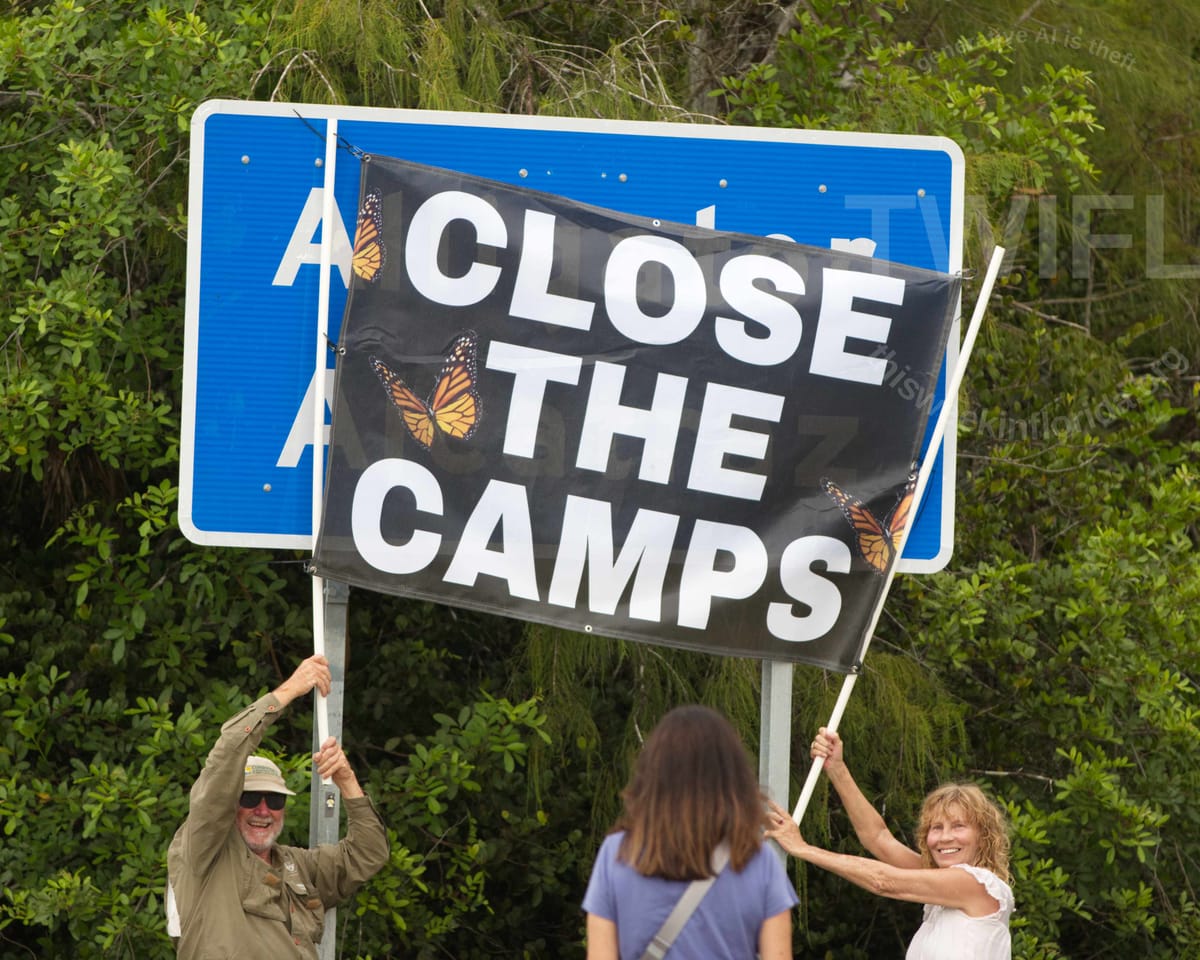
Editor's Note: while this post may look long according to the posting service, more than half of it is a transcription of a talk by Friends of the Everglades Executive Director Eve Samples.
by Philip Cardella
September 7, 2025
Florida, US 41, near mile marker 48 For six consecutive Sundays, adherents to every major faith in South Florida as well as people who consider themselves "spiritual" and those who are atheist but stand united against the South Florida Detention Center, better known by its racist name that has the word alligator in it.
About 125 people attended, about the same as previous weeks. While previous weeks have been entirely prayer vigils, this one had an update on the legal efforts by Friends of the Everglades' Eve Samples. The video below is 10 minutes long and offers her entire comments. There is a transcript at the bottom of the page.
The full talk by Eve Samples of Friends of the Everglades on the status of various lawsuits to shut down the South Florida Detention Center (aka A...... A......).
Samples talk lasted perhaps a quarter of the event– notable as in the three others that I've covered there's been no content like this.
For the remainder of the vigil, the group reflected on variations of the "Golden Rule" as told by different religious traditions, from Islam, to Buddhism to Judaism to Christianity. "That will be our liturgy today," declared one of the facilitators.
The Golden Rule, rather than, "he who does with the most gold wins," or "he with the most gold rules," is typically some variation of "treat others the way you want to be treated.
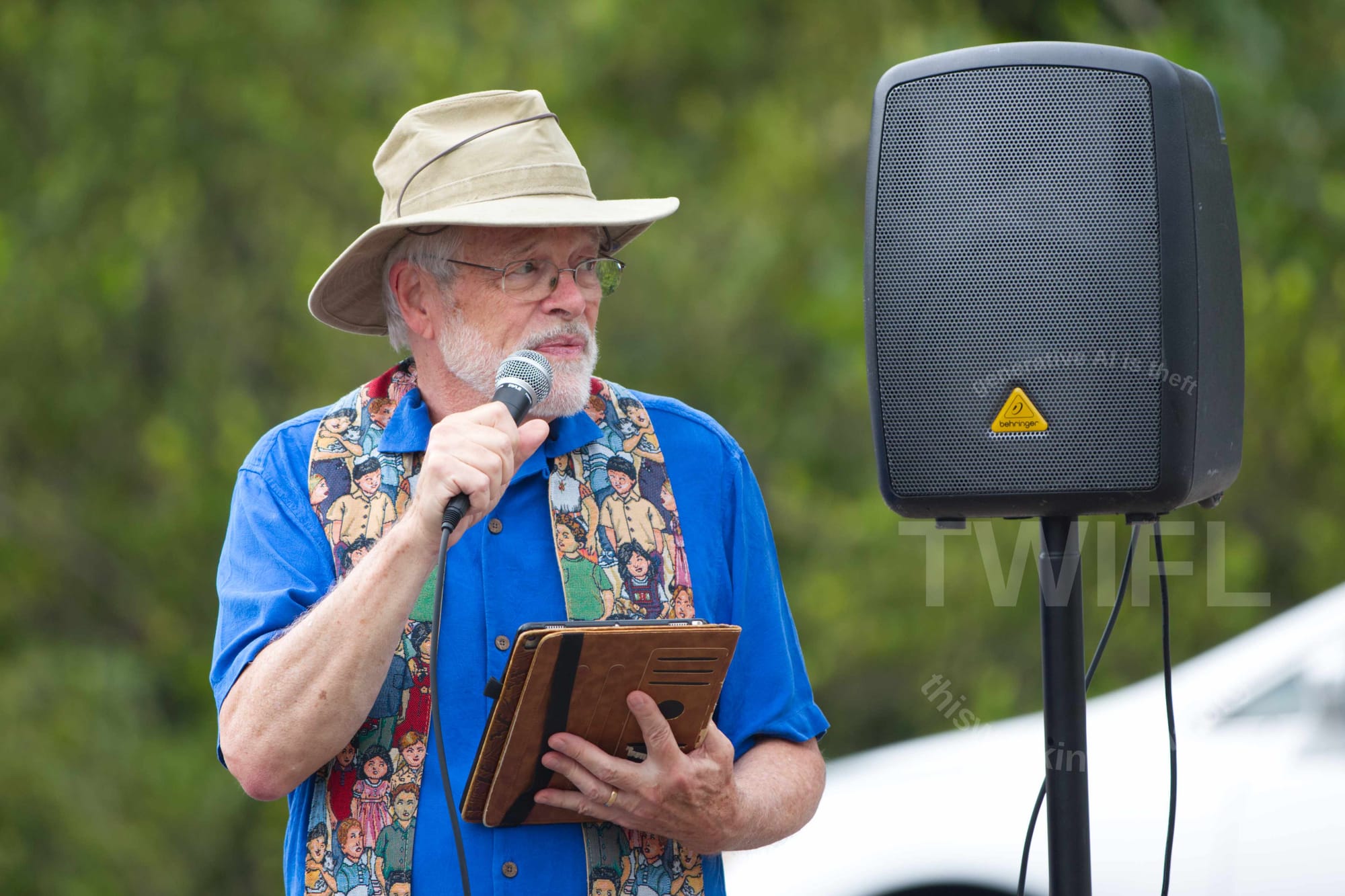
The event was facilitated by Rev. Tony Fisher of the Unitarian Universalist (UU) Congregation of Naples, Florida, who led the congregation in the Everglades in saying, "We are bound to the Earth, we are bound to one another, we are bound to the detained, we are bound in love."
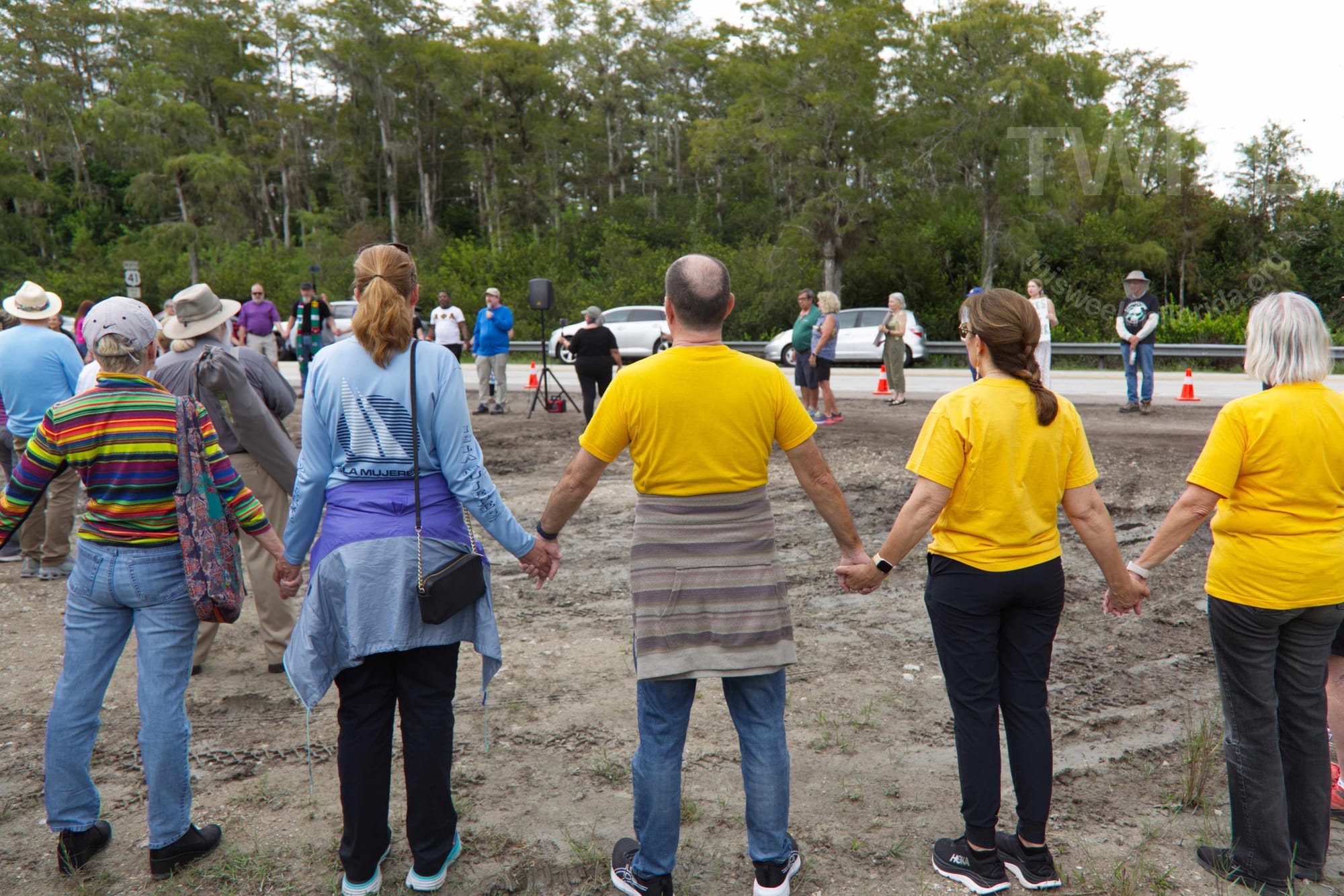
After a few versions of the Golden Rule were read, one of the music leaders for a UU congregation led the group gathered there in the old Civil Rights hymn, "We shall overcome, which you can see part of in this short, 2 minute, video about the prayer vigil. (The verse of the song in the video is "We shall all be free.")
From Betty Osceola's opening invocation for people to love the Earth and to love each other and to stop treating one another like animals, to the closing final version of the golden rule, the word of the day was love and the idea was to love one another.
There will be a seventh prayer vigil on Sunday, September 14, 2025, at 5 PM on US 41 in Florida near mile marker 48.
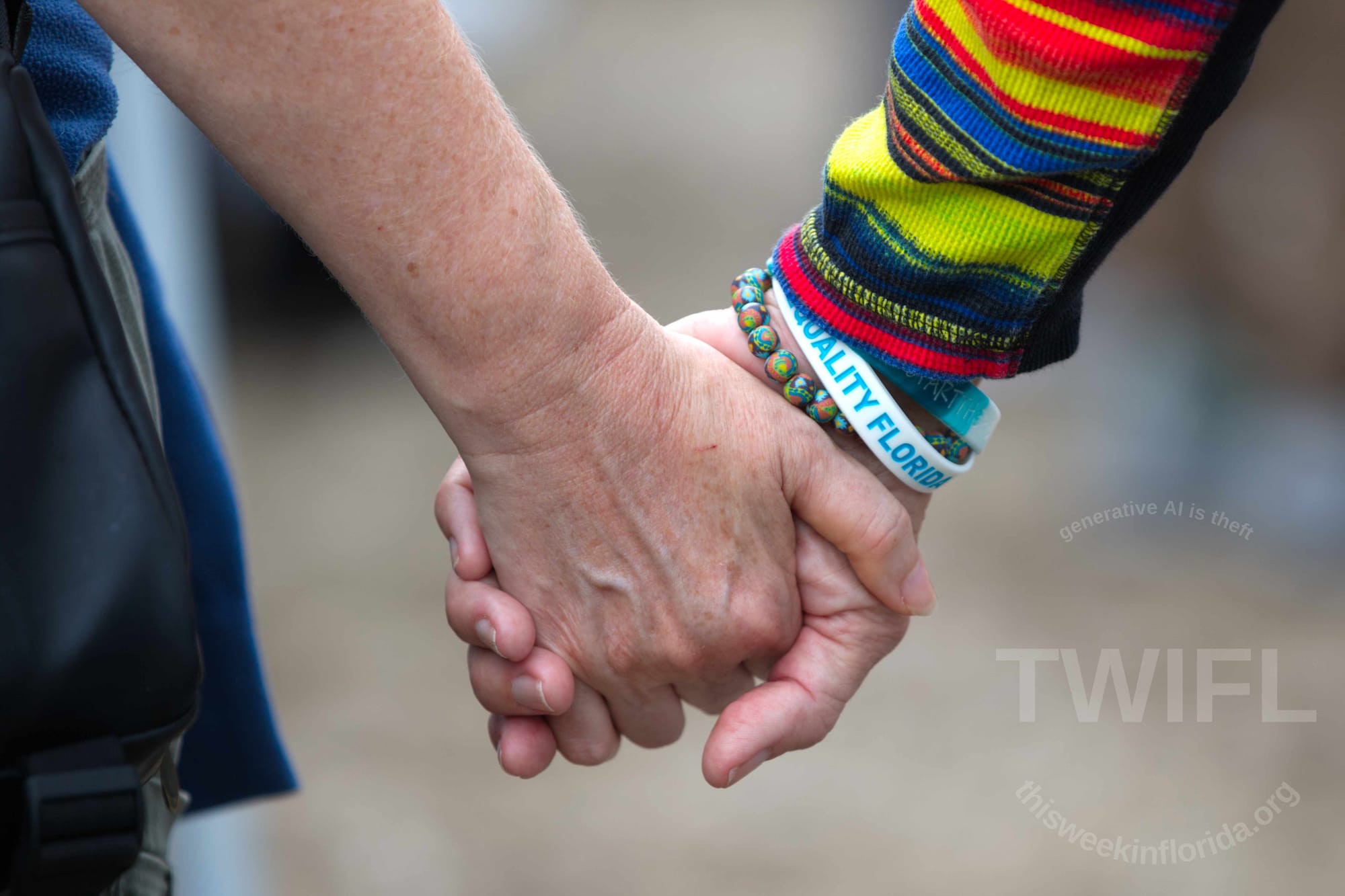
After each of these prayer vigils I scoot just a few miles to the west on US 41 to see if any of my alligator friends are frolicking in the area near the Oasis Visitors Center for Big Cypress National Preserve. Each of the last two weeks there have been some happy to pose for photos. But, as I turned and looked back east, towards the detention center in the Everglades, I saw the rainbow below.
The rainbow seemed like a fitting way to finish the day.
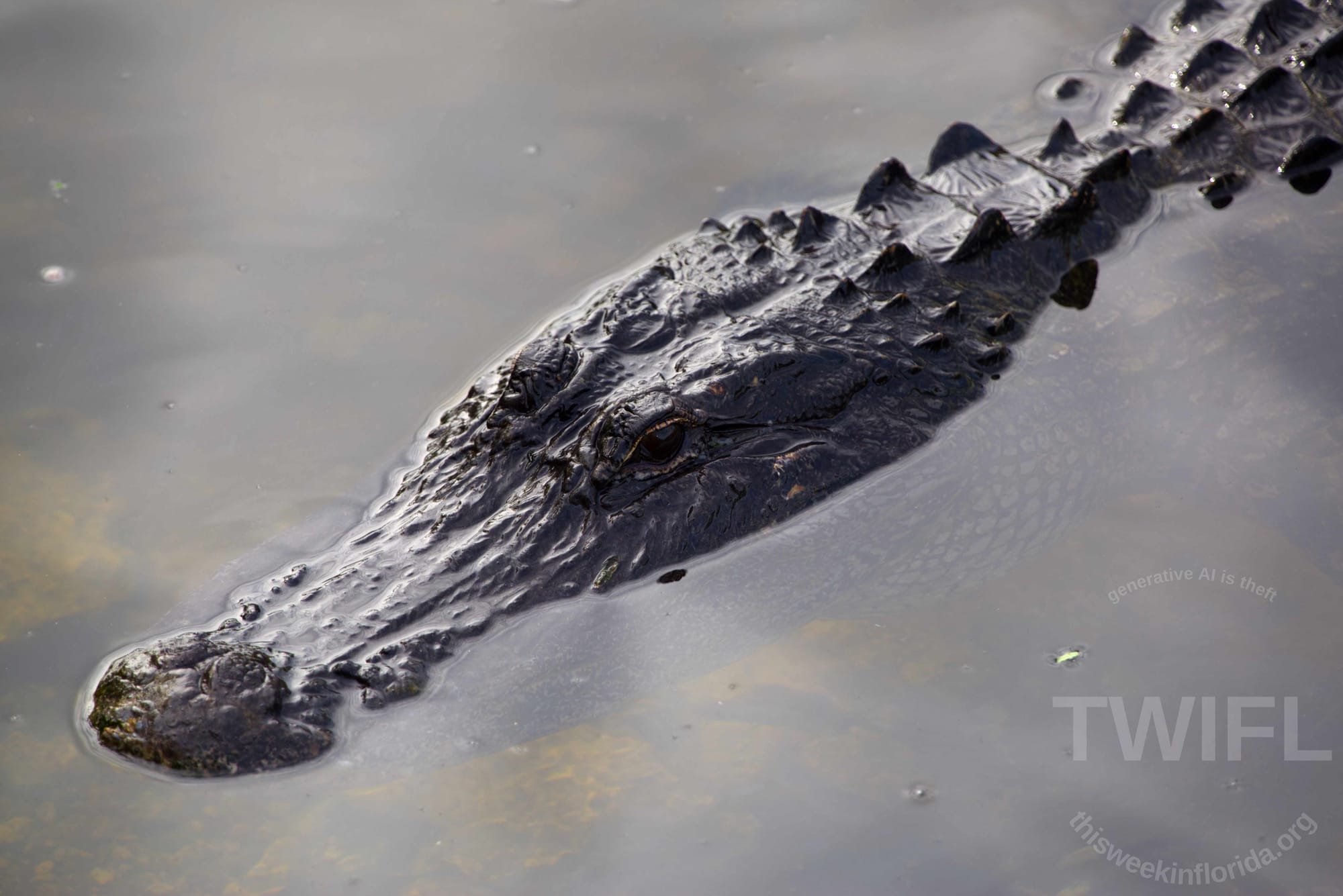
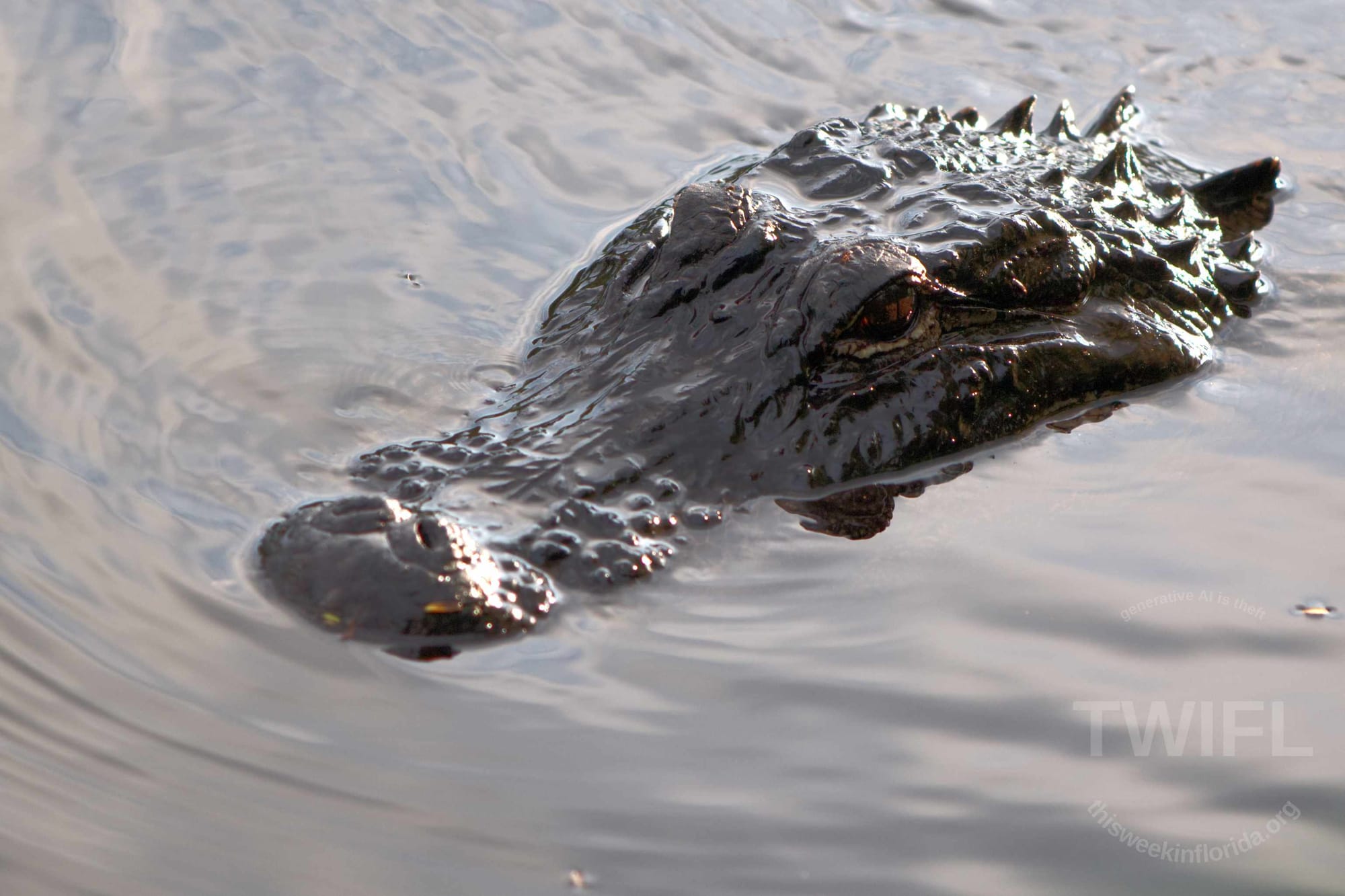
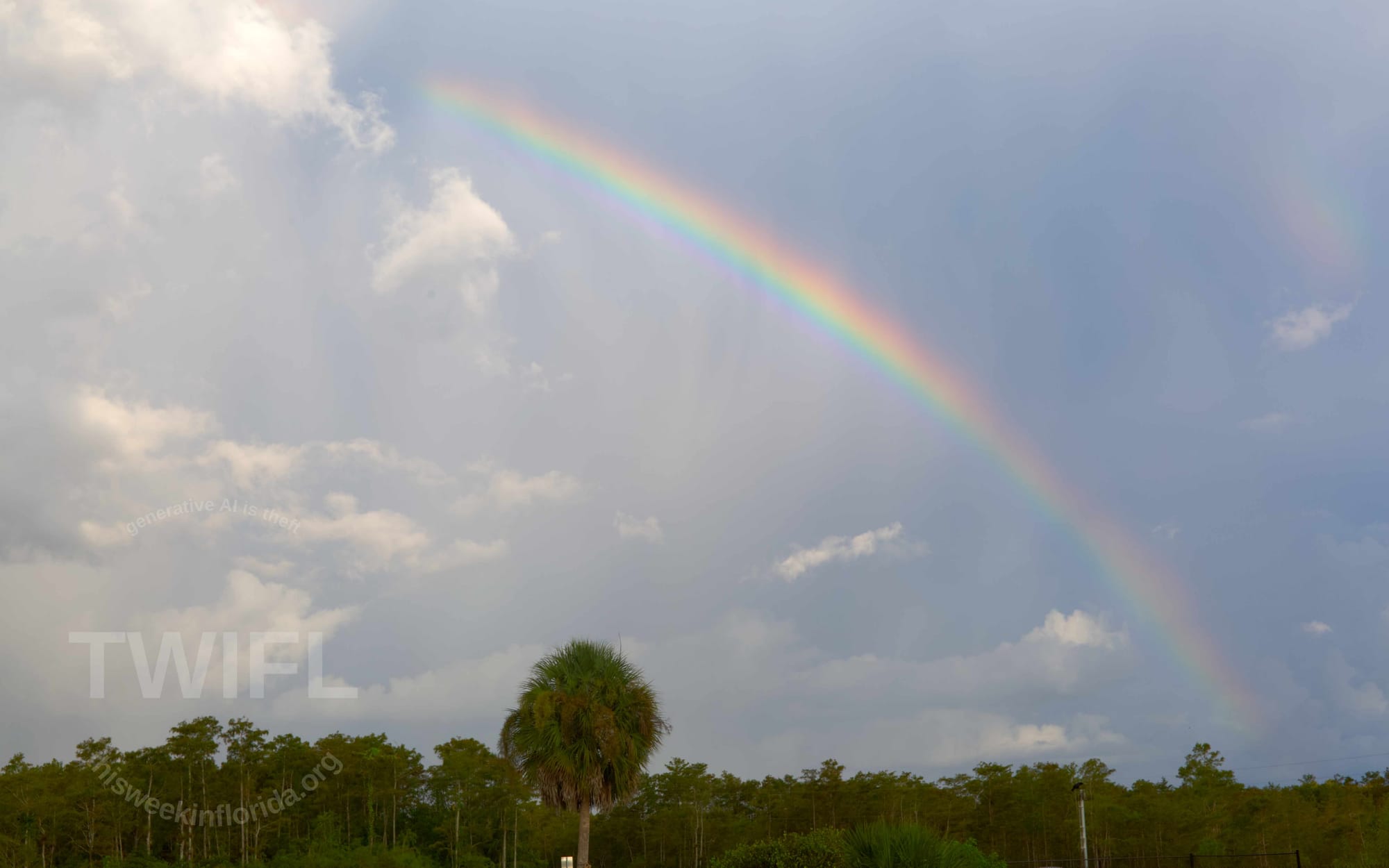
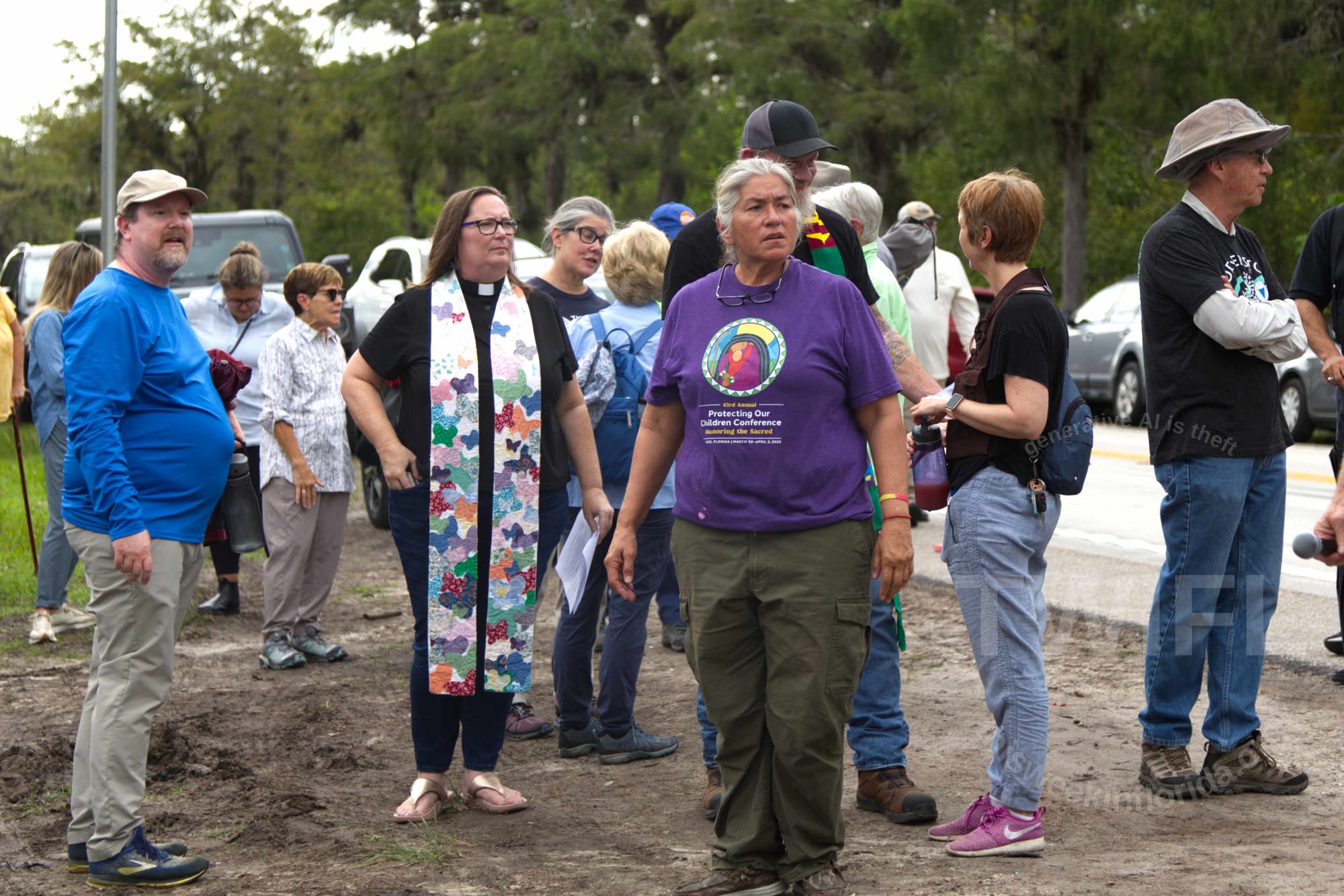
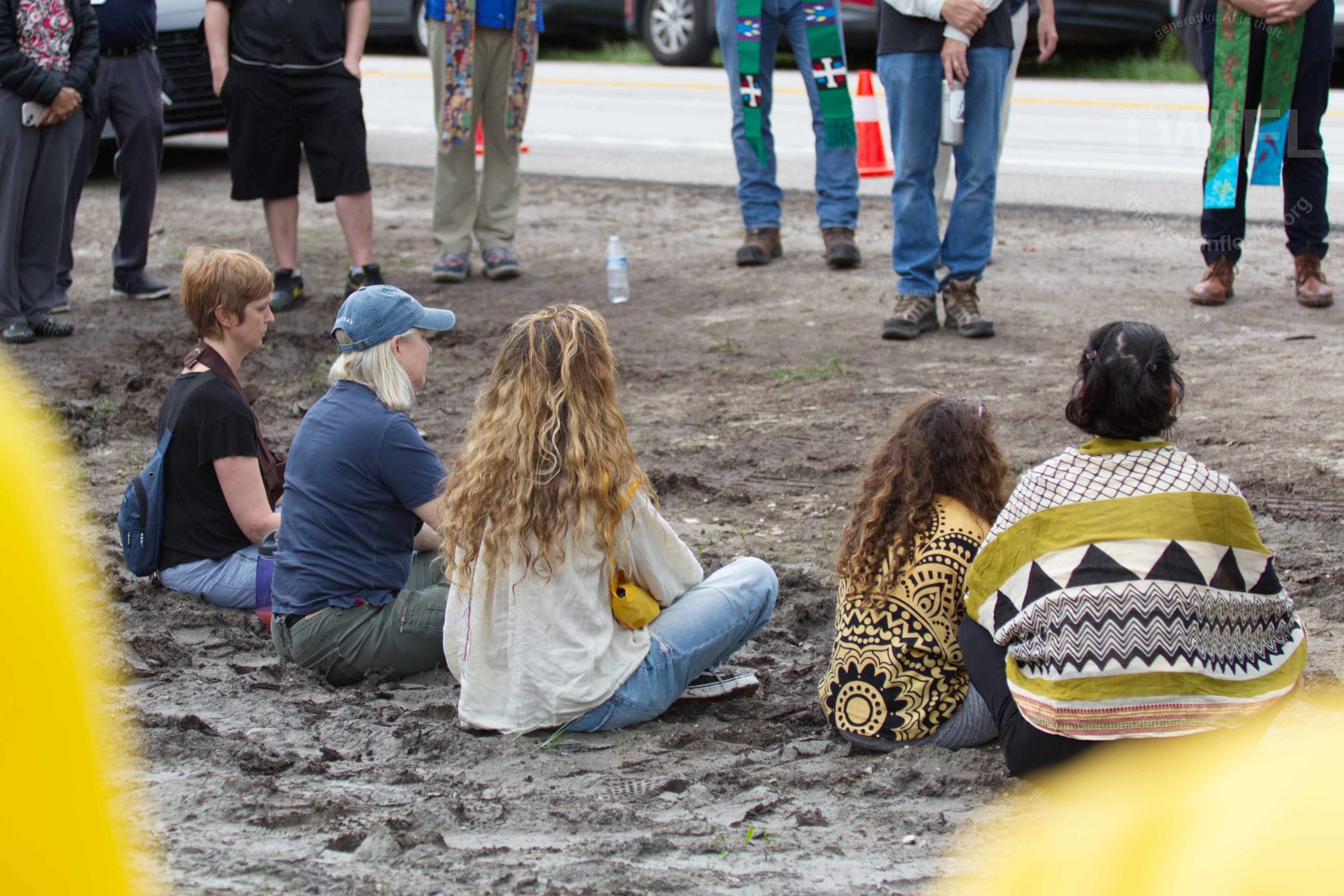
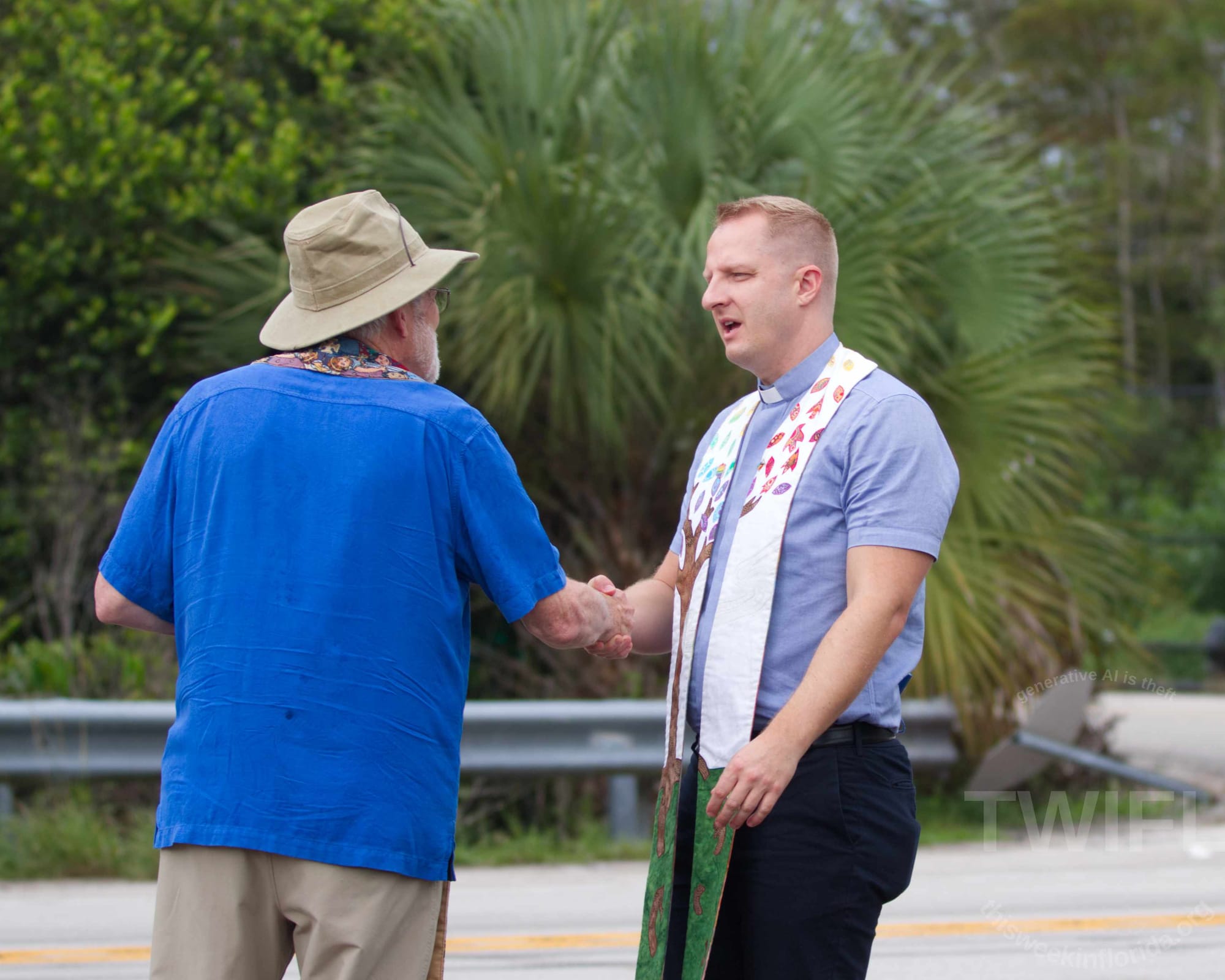
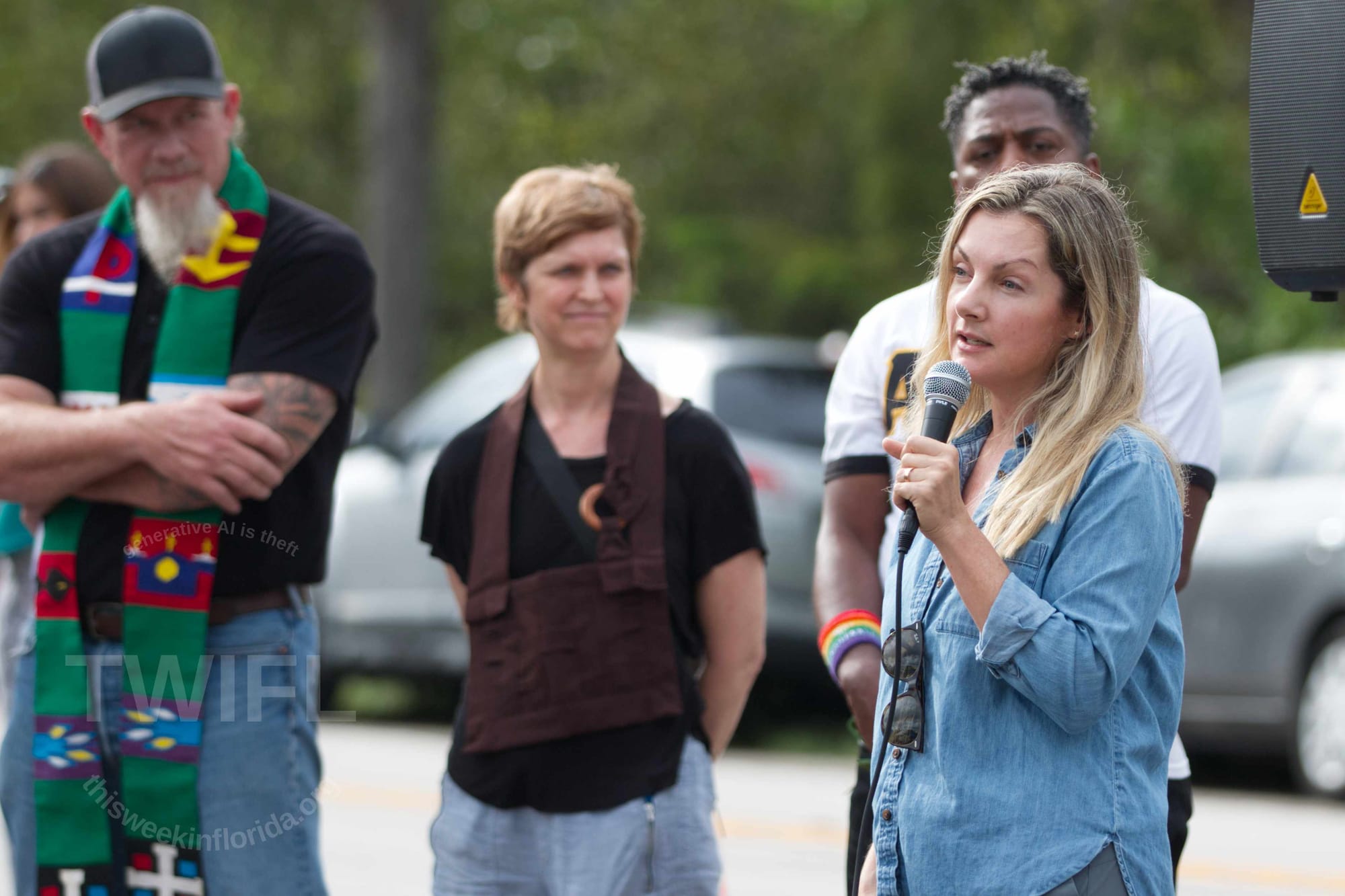
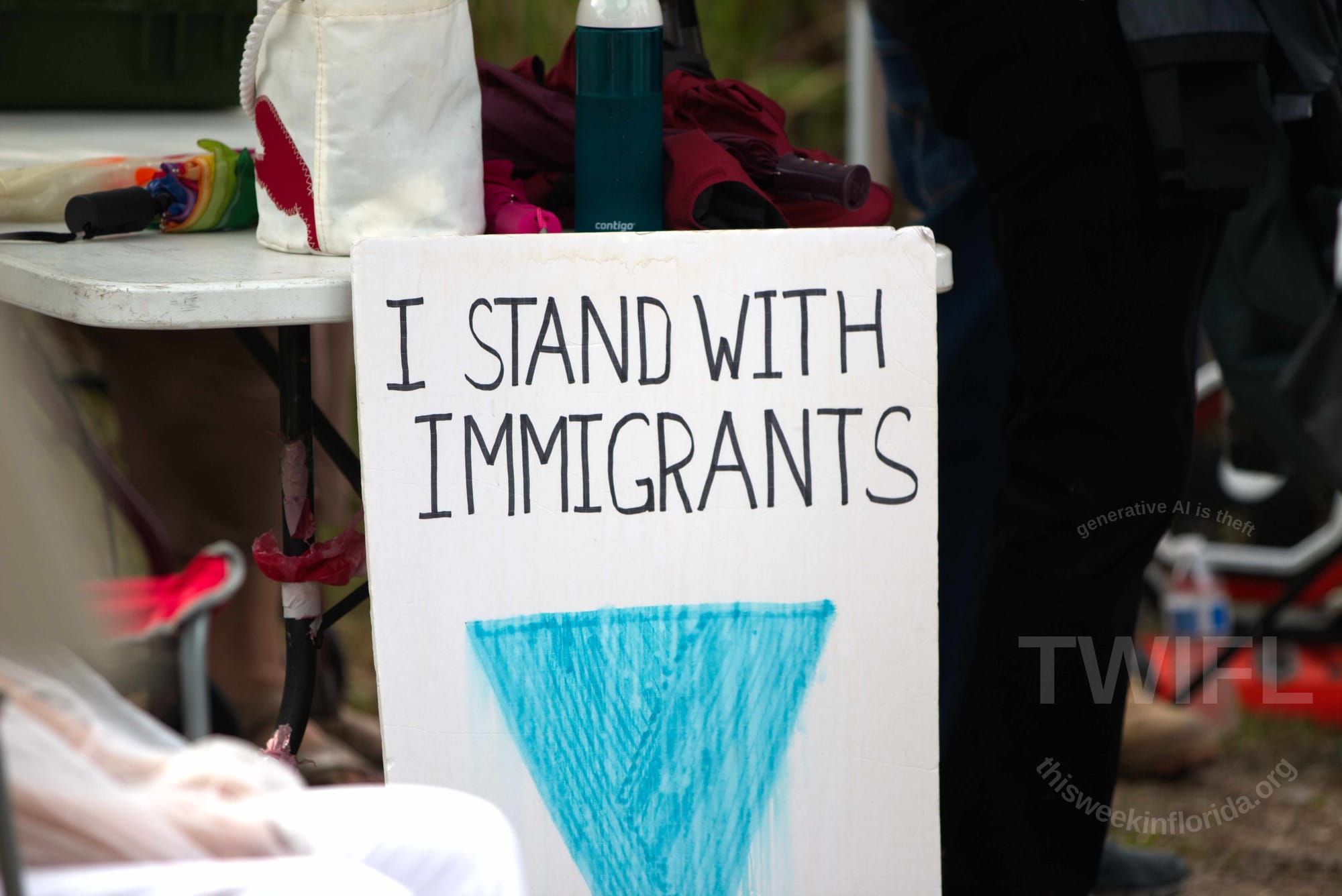

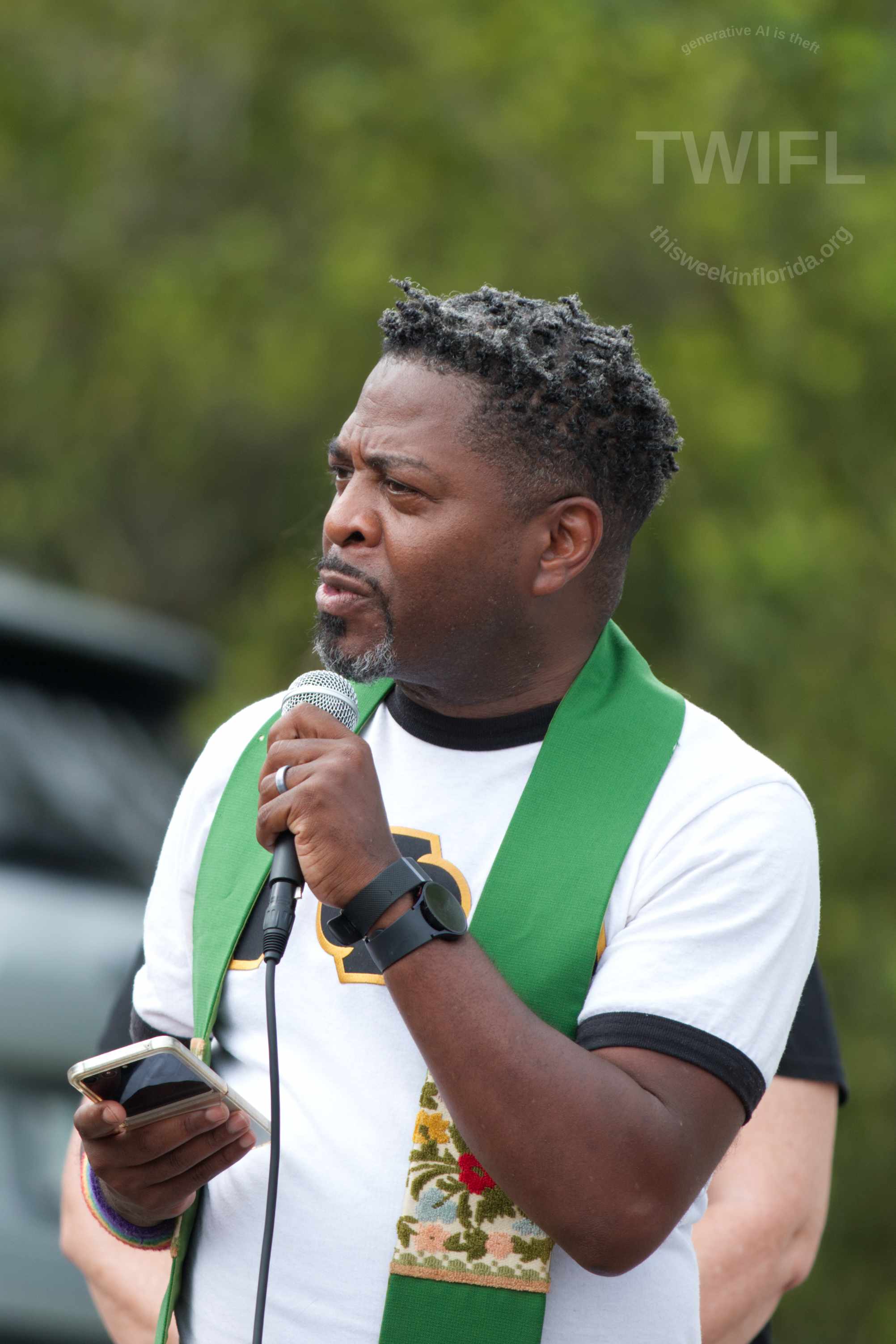

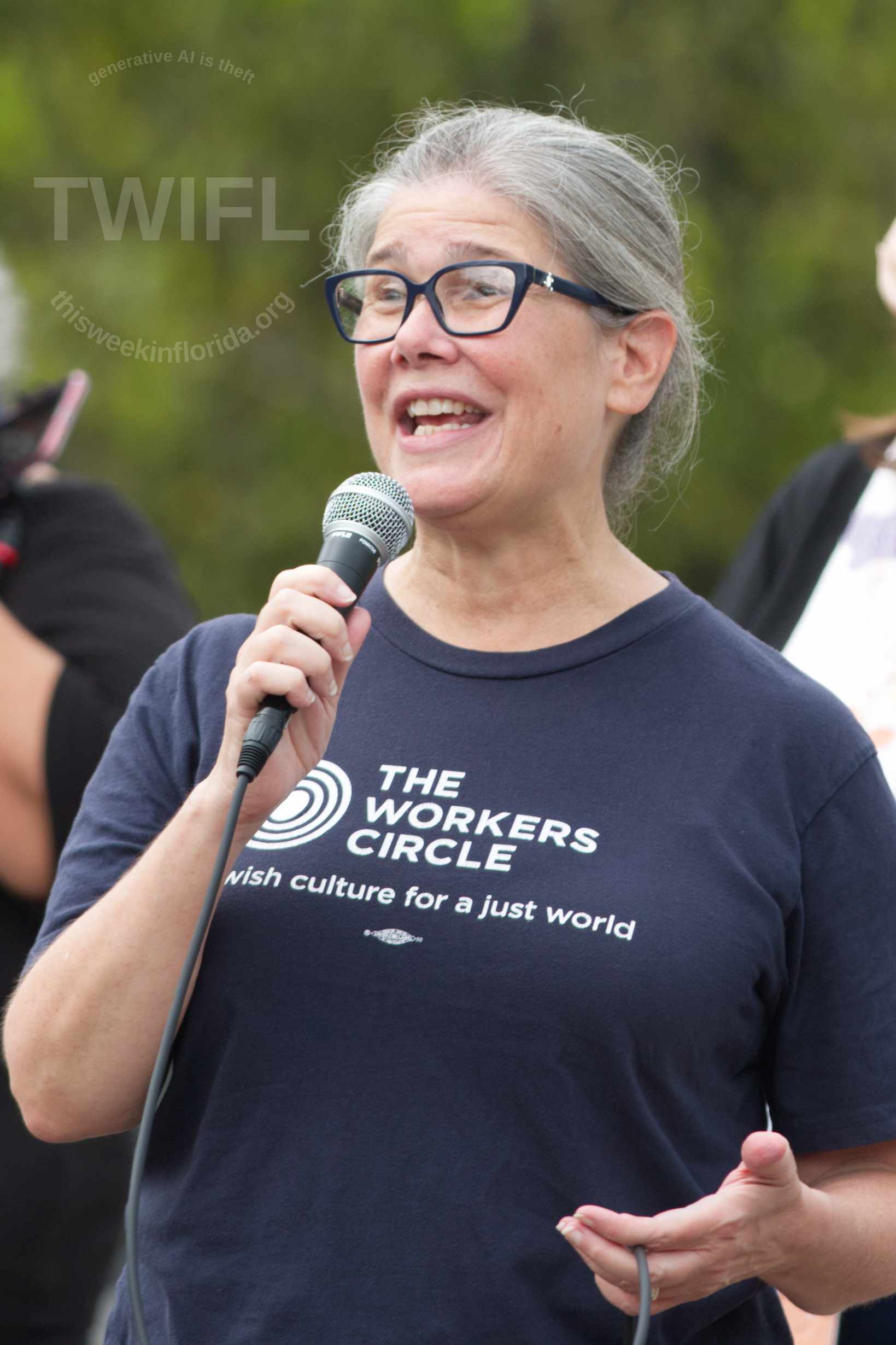
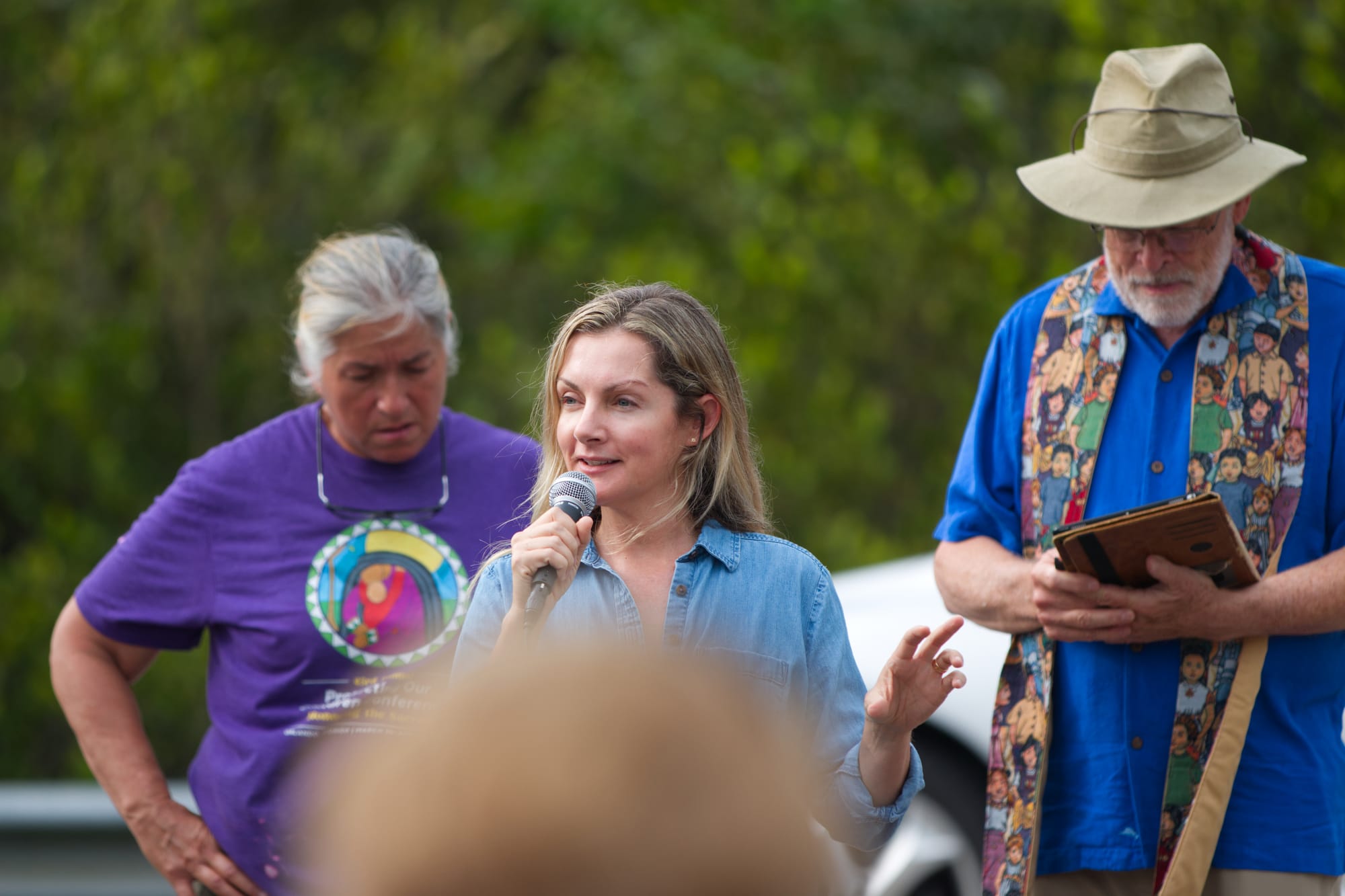
Transcript of Eve Samples' remarks on Sunday, September 7, 2025, in front of the South Florida Detention Center (aka A...... A......):
Eve Samples: It is encouraging to be here with all of you today. And I'm struck by the sign that's in front of the Alligator Alcatraz sign because on my drive out today, I've, I've been thinking about that sign and the fact that someday it will not be there. Someday this sign will be taken down. I'm certain of it. And when they do take it down, I think they should replace it with a historical marker of the fight. Not just that we're waging today. But the one we waged a half a century ago standing with people of all political stripes in Florida. So our group friends of the Everglades was founded by Marjorie Stoneman Douglas in 1969 to protect this very place from harmful development, as I'm sure many of you know, because you're spending your Sunday evening here. Back then, the fight was about a massive airport, what would've been the world's largest airport.
And that airport was halted because people who stood up for the environment stood up with people fighting for other reasons. People living in the community, the indigenous communities here, the Mic Suki tribe was instrumental in that battle too. And we won that battle. And it wasn't just about halting the airport from that battle. An environmental enlightenment really occurred back then. So the National Environmental Policy Act was born in 1970. That is the law we're suing under today to halt this harmful action. This detention center, the Clean Water Act was enacted. The Environmental Protection Agency was created. This, this fabric of environmental protection was stitched together back then in the late sixties and early seventies. And what we're finding now is that we're at this moment of potential unraveling. I have been saying that the threads are being tugged at, but I think we're past that now.
We're really, the seams are stretched. Some of them are torn. And the question is really, will the fabric hold? And I wanna offer a message of hope today because I think it can, I think we can. Our case is a real test of whether the fabric can hold and there's reason for hope not withstanding the Thursday action by the court. So let me tell you a little bit about that. Um, first, I wanna make sure to thank Betty for inviting me here today, and also inviting me and others to join back on June 22nd, the first day that I personally gathered here and opposition to this, this harmful detention camp in the Everglades, the heart of the Everglades, that day, June 22nd, we stood with so many people of diverse backgrounds, just like we did in the sixties and seventies in this country. And I know that, that there's strength in our numbers again.
And we can prevail again. So let me update you on the status of our case. Um, five days after that, that gathering here on T Trail, June 27th, friends of the Everglades and our co-plaintiffs, the Center for Biological Diversity filed suit, we sued under the National Environmental Policy Act because the state and federal government failed to comply with it. They failed to look before they left. They built this detention center without looking at less harmful alternatives. They didn't do an environmental analysis, they didn't take any input from the public. And all of those things are required under the federal law that was born out of this battle here in 1969. So we have a very clear case. The facts are on our side. And during four days of hearings in federal court in Miami in August, we presented evidence we called seven witnesses. Some of that evidence was photos taken by people including Betty of the light pollution that we can now see right here, where we once had some of the most incredible dark skies in the southeastern United States.
Other documentation of 20 acres of new asphalt at this facility do not by the government's argument that this was built on an existing footprint. There has been damaging expansion into the Everglades since construction started. So we brought that evidence forth during four days of hearings, and we did have an initial win, two wins actually, and that's reason for hope so the first win was a temporary restraining order that Judge Williams granted on August 7th that immediately halted new construction at the site. Two weeks later, on August 21st, she granted a preliminary injunction that kept the construction halted. And also as of that order did not allow any new detainees to come to the site. And as I'm sure you know, within 60 days demanded that the site be dismantled. So we were very heartened by that. Her 82 page ruling went into great detail about why that was required under the law.
And then last Thursday, we, we hit a bump in the road, but we knew we would, right? We knew this battle wouldn't be easy. And at the Appeals Court in Atlanta, the 11th Circuit Court of Appeals, a panel of three judges and a two one vote issued a a granted a stay of that preliminary injunction. So that's a temporary pause that is not permanently undoing the injunction. So the, as we sit today, that pause, uh, lifts the injunction that halted the arrival of new detainees. So let's, let's all keep watching and stay vigilant to see what happens out here in the meantime. So what comes next? So the appeal is still pending. The state and federal defendants have appealed while this stay, this pause is in effect of the injunction. We are bringing the full force of our, our co-plaintiffs, our legal team, to fight that appeal.
So Friends of the Everglades Center for Biological Diversity and the Miccosukee Tribe will be fighting that appeal at the same court in Atlanta, but we get a panel of three new judges. That's an important fact to remember as this appeal is pending in the weeks and months to come, and we'll do our very best to expedite it. Um, and we're, we're working through the details and legal decisions of that right now. I wanna make sure that, that we honor some of the, the heroes that are working behind the scenes in this battle are two attorneys at Coffee Burlington. Uh, Scott Hiaasen, who happens to be Carl Hiaasen's son and Paul Schwepp are incredible heroes at Earth Justice, our co-counsel, Tanya Gooney and Dominique Burkhart are doing incredible work. And so many people are, are traveling in their lanes and doing what they do best.
And I think that can be said for all of you here today. And I, I want to express my personal thanks for you to, you for showing up today. Um, if we are successful in the appeal, then the preliminary injunction, we'll be restored and we'll go back to that status we had between August 7th and August 21st. And then we have the whole broader trial ahead of us on the permanent injunction so that NEPA can be compliant with a couple other things to take note of. Um, as you all know, this is an incredible place for endangered species. And we did file a notice of intent to sue under the Endangered Species Act, as well as the Clean Water Act and a third law called the National Parks Organic Act. With those laws, you have to give the government notice that you're going to sue. And we are also looking at all of those options to make sure that, again, we're bringing the, the full force of our team's expertise and the community's will to this battle. Um, so in closing, I I just wanna say that I've gotten so much hope from reflecting back on that battle in 19 69, 19 70, and the remarkable people who fought then whose footsteps we get to walk in now. And I especially think about Marjorie Stoneman Douglas, who was not only an environmental advocate, she was a crusader for equal rights for racial equality. She was a suffragist. Um, she recognized the, the humanity that Betty speaks so powerfully about and our connection to nature being instrumental to black humanity. So I'll, I'll leave you with my favorite call from Marjorie because I think in this moment where we might be tempted to be downtrodden, um, it might lift us up a bit. Marjorie said, be a nuisance where it counts. Do your part to stimulate the public to be informed and join your action. Be depressed, be discouraged at the disheartening effects of greed and bad politics, but never give up. So never give up.
Betty Osceola: Before you go, I have a question. Because I know with the appeal, uh, different organizations did file something in court in support of the, um, on the stance of Friends of the Everglades and the Biological Diversity and the tribe. And what, as these faith-based organizations, are they able to do that as well if they so choose? So what could they do?
Eve Samples: Yes, there was an amicus brief filed just a week ago, um, Wednesday, I think it was Tuesday. I stand corrected by some environmental groups. And if any of you are interested in an amicus, um, partnership, a friend of the court is, is also what it's known as. Please reach out to me and I'll put you in touch with the person who's leading the conservation amicus. There may be another leader for faith-based groups that wanna file amicus briefs, but I think that's an important option to consider. We need to be all pulling together.
